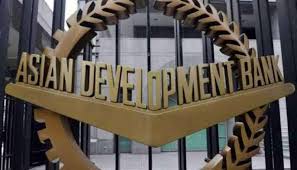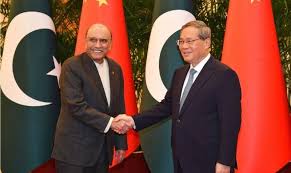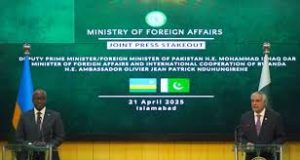ADB promotes innovation and efficiency to bolster anticorruption efforts

Islamabad: The Asian Development Bank (ADB) is promoting innovation and efficiency to enhance its anticorruption efforts by streamlining case management and expediting the assessment of complaints and completion of investigations, according to the Office of Anticorruption and Integrity (OAI) 2019 Annual Report released on Monday.
“We reassessed and rebalanced our resources to align with ADB’s long-term strategy, Strategy 2030,” said OAI Head John Versantvoort. “These measures have allowed us to provide better value to our stakeholders and achieve significant improvements in the number of completed investigations and complaints that we assessed and closed.”
In 2019, ADB concluded 110 investigations into integrity violations, a 93% increase from the previous year, and assessed and closed 219 complaints, an increase of 16%. ADB debarred 69 firms and 62 individuals for violating ADB’s Anticorruption Policy (1998, as amended since). It cross debarred 153 firms and 20 individuals sanctioned by other multilateral development banks.
Imposition of other remedial actions against firms and individuals, such as reprimands and cautions, more than doubled from 2018.
Strengthening governance and institutional capacity to improve service delivery in ADB developing member countries is one of seven operational priorities under ADB’s Strategy 2030.
OAI conducted eight Proactive Integrity Reviews (PIRs) of ADB-financed projects in Afghanistan, Bhutan, Georgia, Indonesia, Kazakhstan, Myanmar, Nepal, and Palau.
PIRs assess the application of sound financial management, procurement, and asset management practices by government agencies responsible for implementing ADB projects and recommend remedial measures for any shortcomings. In 2019, OAI conducted a PIR on an emergency assistance project for the first time.
“We are fully appreciative of the constructive review and recommendations that OAI has provided in the ongoing Nikachhu Hydropower project so that we can improve, benefit, and better manage our present and future projects,” said Managing Director of the Bhutan Druk Green Power Corporation Dasho Chhewang Rinzin, who is responsible for implementation of the project. “We will continue to work to ensure that the recommendations of the OAI report get implemented.”
ADB maintained quality screening methods to identify, assess, and mitigate integrity risks associated with its private sector counterparts and projects. It conducted integrity due diligence on 954 entities and issued 869 advisories on compliance.
It provided capacity building support on anti-money laundering and combating the financing of terrorism in Mongolia, the Philippines, and Viet Nam. ADB also expanded its technical assistance to strengthen tax integrity standards to Armenia, Cambodia, Maldives, the Marshall Islands, the Federated States of Micronesia, Papua New Guinea, Samoa, and Thailand.
ADB launched its first gamified e-learning course and delivered 98 learning sessions, including trainings on anticorruption and respect at work to widen the reach of its knowledge-sharing and communication work.
It also contributed to the G20’s Good Practices Guide on Promoting Integrity and Transparency in Infrastructure Development.
It gathered representatives from 14 international financial institutions to strengthen integrity risk management in private sector transactions. Together with the Organisation for Economic Co-operation and Development and the Government of Vietnam, ADB hosted a conference for the Anticorruption Initiative for Asia and the Pacific—the largest anticorruption network in the region.





